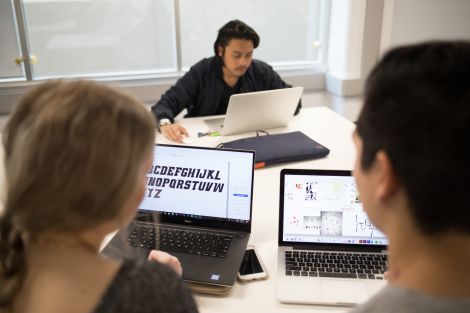Support, encourage and inspire your peers while developing a range of positive graduate attributes
More than 1000 Griffith students become mentors each year. As a mentor you can:
- gain confidence and develop as a leader
- expand your employment options and personal networks
- develop interpersonal skills
- gain further understanding of diversity.
Explore the role of mentoring, the benefits and mentoring options below.
What is a student mentor?
Student mentors are assigned leaders who assist less experienced students develop their capabilities and provide peer support for students at university.
To be a student mentor, you must have completed the first year of an undergraduate degree and have an understanding of common student issues. You must also:
- be able to share knowledge, skills and experiences with others
- have a genuine interest in supporting students, with an understanding and tolerance of human and cultural diversity
- display well-developed communication, interpersonal and negotiating skills
- be able to use appropriate IT tools

Mentoring information
Time commitments
Depending on the nature of your role, you may be asked to be involved in activities during Orientation Week or you may also be asked to be in contact with your mentees daily, weekly or fortnightly.
Training and support
Mentor training is offered to all new mentors to help you to understand the role and commitment of the mentor, as well as the skills necessary to fulfil the role. Mentors are supported by the Mentoring Program Coordinator. It's realistic to expect that as a mentor you may also need assistance from support staff or first-year advisors etc.
Knowledge and answers
Mentors are not expected to have all the answers to mentee questions. Your role is to model help-seeking behaviour, to support students to gain the confidence and information to find their own answers. Students who ask questions and seek help when they need it tend to do better than those who do not.
Mentee success
You are not responsible for the success of your mentees. Your role is to guide and support new students and to encourage them to work things out for themselves, to help them to find their own solutions. Your role is not to 'fix' or 'rescue'.
Mentor outcomes

Enhance your personal development
In response to our evaluation activities, student mentors report positively on the personal development opportunities our mentoring programs afford them, including:
- developing interpersonal skills, particularly intercultural communication
- gaining a deeper understanding of cultural difference and building an awareness of diversity
- extending personal networks and interacting with people from diverse backgrounds
- developing as a leader
- gaining confidence
- feeling a sense of personal satisfaction in contributing to the Griffith community and helping fellow students.

Become an effective communicator and team member
- written and verbal communication
- communication via multimedia, visual, musical and other forms relevant to your discipline
- collaborating effectively with others in teams, in the workplace and in culturally or linguistically diverse contexts.

Become more innovative and socially aware
Becoming a student mentor, you'll have the opportunity to develop your ability to use knowledge and skills to devise solutions to unfamiliar problems.
You may also become more socially responsible and engaged your community by:
- being ethically aware and displaying professional, personal and academic integrity
- understanding social and civic responsibilities, human rights and sustainability
- understanding the value of further learning and professional development.

Understand culturally diverse perspectives
Student mentors have opportunities to develop attributes including:
- awareness of and respect for the values and knowledge of Australian Aboriginal and Torres Strait Islander First Peoples
- understanding the value of further learning and professional development
- demonstrating respect, awareness, knowledge and skills to interact effectively in culturally or linguistically diverse contexts
- displaying a global and international perspective on your discipline.
Mentoring options
Explore our range of student mentoring programs to find the best place to make your mentoring contribution.
You can find out more about becoming a mentor via each program.
Thank you, mentors
Recording the Benefits of Your Mentoring Experience
If you haven’t started an e-portfolio yet, there is no better time to explore this option using your mentoring experience as a starting point. Have a look at the mentor outcomes and view examples of some excellent student portfolios to reflect on the personal and professional benefits you have derived from being a mentor.
Other opportunities
Explore more opportunities beyond the classroom to help boost your employability